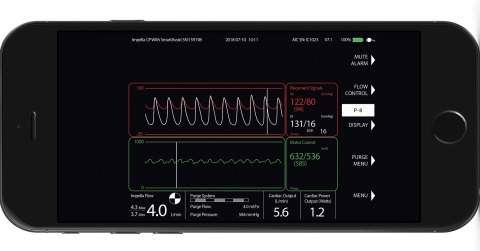
The Impella 2.5 and Impella CP devices are Impella Connect, which already secured PMA approval from US FDA, is said to be the first-of-its kind cloud-based technology that allows secure, real-time and remote viewing of the Impella console for physicians and hospital staff from any place with Internet connectivity.
Impella Connect applies real-time intelligence to help enhance patient outcomes, said the company.
The cloud-based platform enables trained staff at Abiomed’s round the clock clinical support center to offer medical professionals with expert assessment of Impella data and real-time collaborative patient management, in addition to supporting medical professionals to see their hospital’s consoles remotely.
Impella Connect is fully HIPAA compliant, and is limitedly released in the US based on the earlier FDA PMA approval.
At present, the 36 hospital sites are using the cloud-based monitoring platform regularly to offer better real-time support for their patients.
Abiomed is also planning to introduce Impella Connect solution in Europe this quarter, via initial controlled roll-out at hospital sites with established heart recovery protocols.
The University Heart Center in Hamburg of Germany will be the first hospital to use the Impella Connect platform in Europe.
Impella 2.5 and Impella CP devices secured FDA approval for the treatment of certain advanced heart failure patients undergoing elective and urgent percutaneous coronary interventions (PCI), including stenting or balloon angioplasty, to re-open blocked coronary arteries.
Impella 2.5, Impella CP, Impella CP with SmartAssist, Impella 5.0 and Impella LD heart pumps received FDA approval to treat heart attack or cardiomyopathy patients in cardiogenic shock.
Abiomed president, chairman and CEO Michael Minogue said: “Impella Connect is a technological advancement which represents the next frontier of heart recovery products.
“Impella Connect, along with our 24×7 onsite and on-call support, enables physicians, nurses and ICU staff to increase productivity, improve patient outcomes, and help patients return home with their native heart.”






